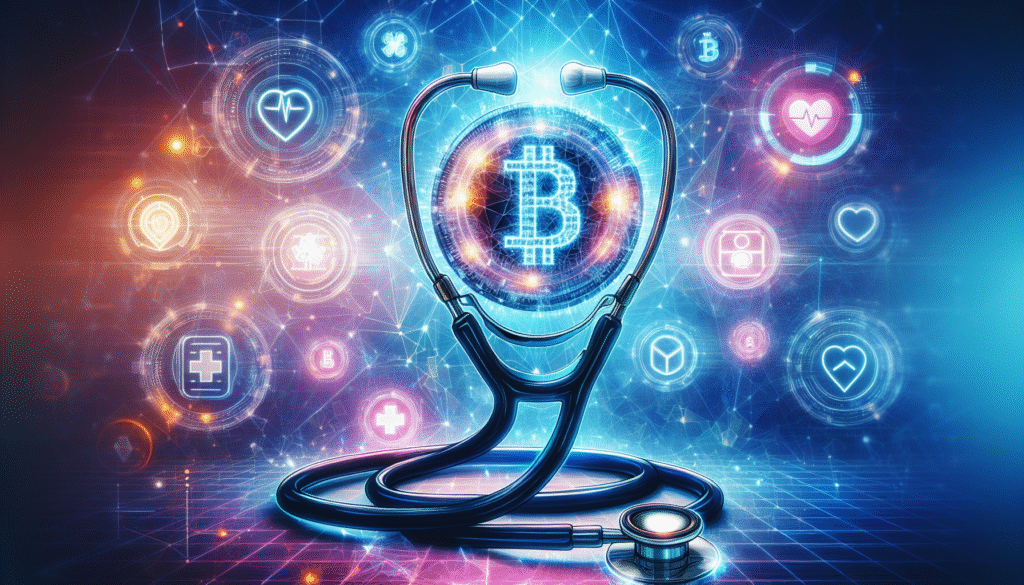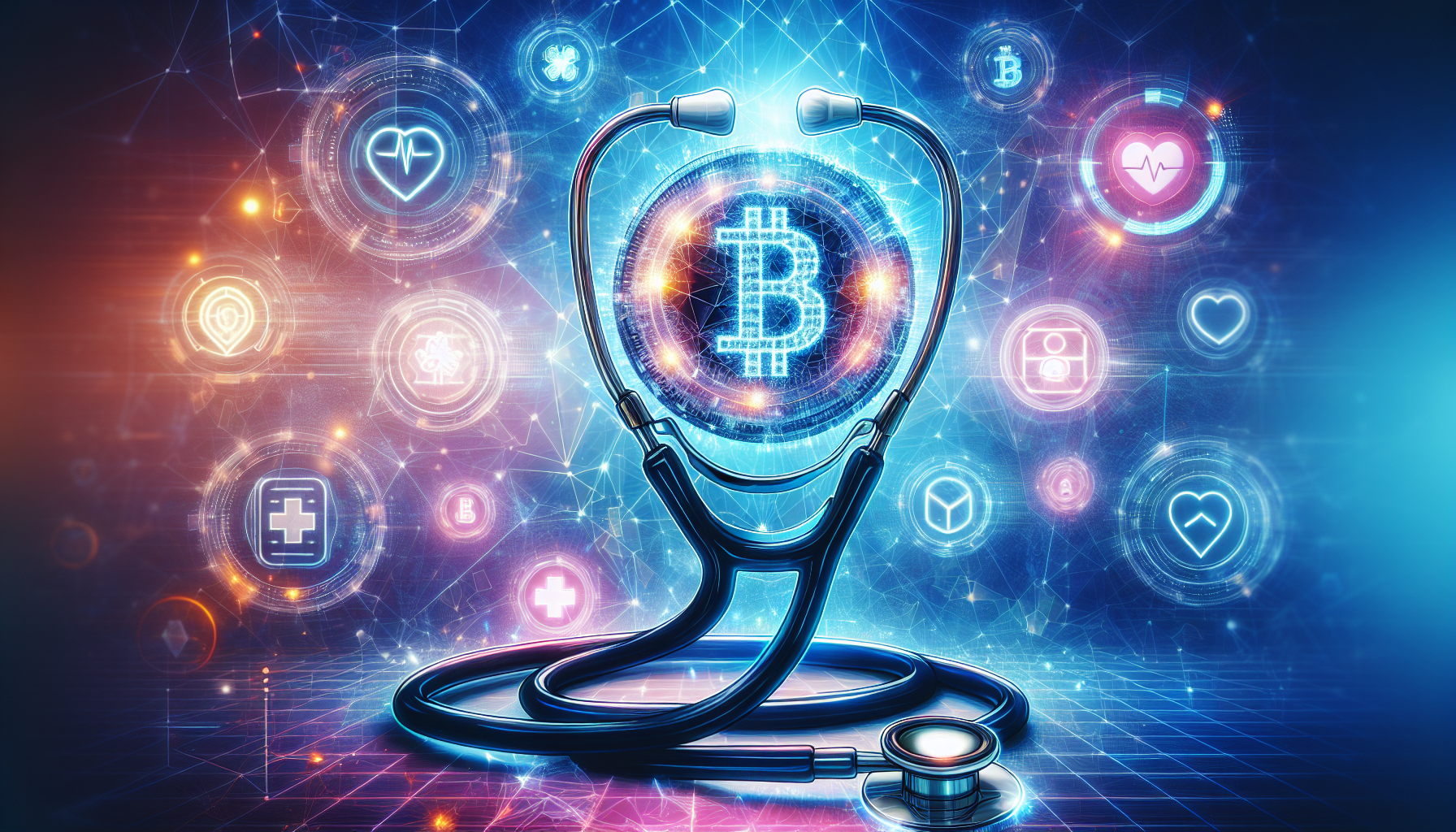Have you ever wondered how the world of cryptocurrency might reshape the landscape of remote healthcare services? While it might seem like these two domains are worlds apart, they share a synergy that is beginning to unfold in fascinating ways. As healthcare faces global challenges, innovative solutions like crypto are emerging as potential game-changers. Your curiosity about this intersection is well founded, as it could influence how you experience healthcare services in the future.

Understanding Cryptocurrencies: A Quick Overview
Cryptocurrencies are digital or virtual currencies that use cryptography for security, making them difficult to counterfeit. They operate on decentralized systems using blockchain technology, a distributed ledger enforced by a network of computers. This setup ensures transparency and security in transactions. Bitcoin, Ethereum, and Ripple are some of the well-known cryptocurrencies, each with unique features and applications. Cryptocurrencies were initially conceived as a medium of exchange, but their purpose has expanded into various sectors, including finance, supply chain management, and now, healthcare.
The Basics of Blockchain
Blockchain is a digital ledger where transactions are recorded chronologically and publicly. This technology underpins cryptocurrencies and is known for its ability to provide secure, transparent, and tamper-proof records. Understanding blockchain is crucial as it forms the architecture for various crypto applications, especially in sectors that require high security like healthcare.
How Cryptocurrencies Operate
Cryptocurrencies operate on a peer-to-peer network, allowing transactions without an intermediary like a bank. This ability to bypass traditional financial systems is one of crypto’s strong suits. When you send cryptocurrency, the network verifies the transaction through complex algorithms and then records it on the blockchain, ensuring a reliable transfer process.
The Current State of Remote Healthcare
Remote healthcare services, also known as telehealth, have been on the rise, propelled by technological advancements and increased demand particularly seen during global events like the COVID-19 pandemic. It entails delivering healthcare services through digital platforms, removing the need for physical consultations. Services include virtual consultations, remote monitoring, digital prescriptions, and more.
Advantages of Remote Healthcare
Remote healthcare provides numerous advantages such as convenience, increased accessibility, reduced healthcare costs, and the ability to reach underserved populations. This model allows you to consult healthcare providers from the comfort of your home, which can reduce travel time and expenses, and provide access to specialists who may be located far away.
Challenges Facing Remote Healthcare
Despite its benefits, remote healthcare also faces challenges. These include issues related to data privacy and security, the digital divide affecting those without internet access, and sometimes limited diagnostic capabilities compared to in-person visits. Addressing these challenges is essential for the optimal functioning of remote healthcare services and the role of cryptocurrencies in improving these areas is worth exploring.
The Synergy Between Crypto and Remote Healthcare
Integrating cryptocurrencies into remote healthcare could offer solutions to some of the existing challenges. The decentralized and secure nature of cryptocurrencies can enhance various aspects of healthcare delivery.
Enhancing Payment Solutions
Cryptocurrencies can streamline payment solutions in healthcare. Traditional payment systems often involve banks, payment processors, and government regulations, leading to delays and sometimes high transaction fees. In contrast, crypto payments can be processed swiftly, often with lower fees, and provide near-instantaneous transfer of funds globally, which could facilitate faster and more efficient retailer operations in a healthcare setting.
Improving Data Security and Privacy
The secure and immutable nature of blockchain can be beneficial in enhancing data security and privacy. In remote healthcare, protecting patient data is crucial. By using blockchain technology, patient records can be securely stored and accessed only by authorized entities, significantly reducing the risk of data breaches and unauthorized access.
Facilitating Supply Chain Transparency
The healthcare industry relies heavily on a vast and complex supply chain. With blockchain, each step of the supply process can be recorded, providing transparency and traceability. This technology could help in managing inventories, tracking pharmaceuticals, and ensuring the authenticity and safe delivery of medical supplies to remote areas, thereby improving patient care delivery.
Real-World Applications and Emerging Trends
The integration of crypto in remote healthcare is not just theoretical; it’s already being applied and tested in various projects across the globe.
Case Studies of Crypto Use in Healthcare
Several startups and healthcare institutions are pioneering the use of crypto in healthcare. For instance, a platform might use blockchain to manage medical records more securely while another leverages smart contracts for automated billing of remote consultations. These cases demonstrate the practical applications and potential of cryptocurrency in transforming healthcare.
The Rise of Health-focused Cryptocurrencies
An interesting trend is the emergence of health-specific cryptocurrencies. These are digital currencies designed specifically for healthcare transactions. They could be used to incentivize healthy behavior or simplify medical billing processes. It’s an area gaining traction as more entities in the healthcare sector recognize the potential benefits.

Overcoming Potential Barriers
While the promise of crypto in remote healthcare is substantial, you’ll also encounter several hurdles. Technologies in their nascent stages often face regulatory and scalability issues.
Navigating Regulatory Challenges
The regulatory landscape for cryptocurrencies varies across regional and international jurisdictions. Understanding these regulations is crucial for healthcare entities looking to integrate crypto. There’s a need for clear regulations that balance innovation with consumer protection.
Addressing Scalability and Implementation
Scaling blockchain-based solutions across wide networks necessitates tailored approaches. Here, significant investments in infrastructure and the development of user-friendly interfaces could ease implementation challenges, making technology accessible to non-technical users.
The Future of Crypto in Remote Healthcare Services
Looking forward, the role of cryptocurrencies in remote healthcare services is bound to grow. The convergence of these two sectors presents opportunities for delivering more equitable, efficient, and transparent healthcare solutions.
Innovations on the Horizon
Upcoming advancements include integrating artificial intelligence with blockchain for predictive healthcare analysis, enhancing personalized medicine, and fostering patient-centered care. As these technologies mature, they hold promising potential to revolutionize the healthcare domain further.
Your Role and the Consumer Perspective
As healthcare consumers, staying informed about these advancements is crucial. By understanding how cryptocurrencies and blockchain might impact healthcare services, you can make informed choices, advocate for better services, and ultimately benefit from streamlined, secure, and more effective healthcare solutions.
Table: Key Benefits and Challenges of Crypto in Remote Healthcare
| Benefits | Explanation |
|---|---|
| Faster Payments | Near-instantaneous transactions could facilitate quicker payments for services. |
| Cost Efficiency | Lower transaction fees for payment processing compared to traditional methods. |
| Enhanced Security | Blockchain provides secure, tamper-proof maintenance of medical records. |
| Global Accessibility | Cryptocurrency enables payments and services across international borders efficiently. |
| Supply Chain Transparency | Helps in tracking and ensuring the authenticity of drugs and supplies. |
| Challenges | Explanation |
|---|---|
| Regulatory Hurdles | Complex and varied regulations across the globe might slow adoption. |
| Technological Complexity | Integrating blockchain technology requires significant technological investment and expertise. |
| Scale and Integration | Difficulty in scaling systems to wide networks with current infrastructure. |
Conclusion
In a world where technology is shaping the way we live and access services, the synergistic potential of cryptocurrencies in remote healthcare offers an exciting glimpse into the future. You stand at the cusp of a technological revolution that has the potential to redefine healthcare delivery on a global scale. By understanding these developments, you can better navigate the healthcare landscape and reap the benefits of enhanced, secure, and transparent service access. The road ahead is promising, and as the path unfolds, staying engaged with these technologies will be key to embracing smarter healthcare solutions.

